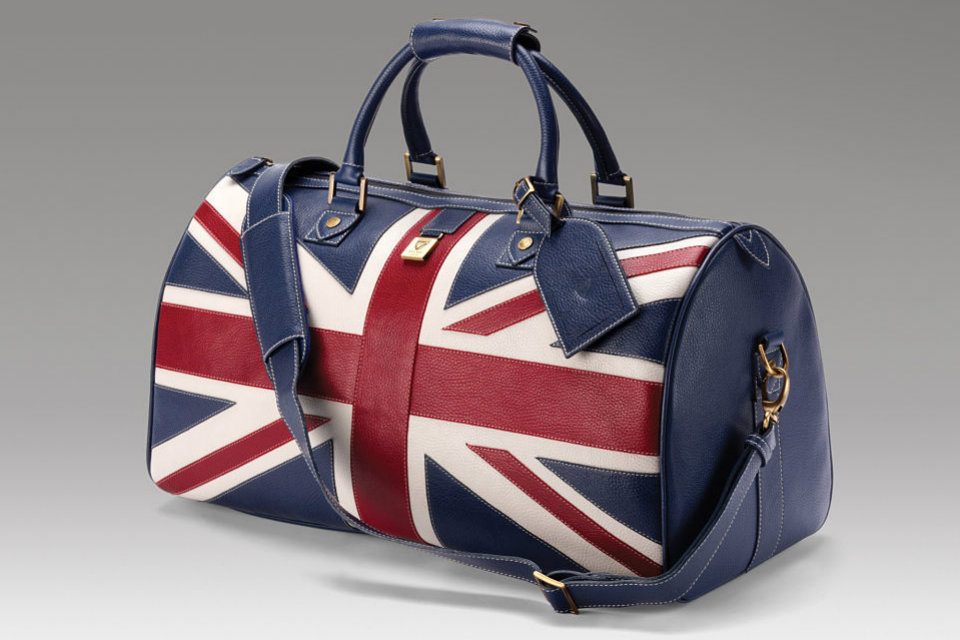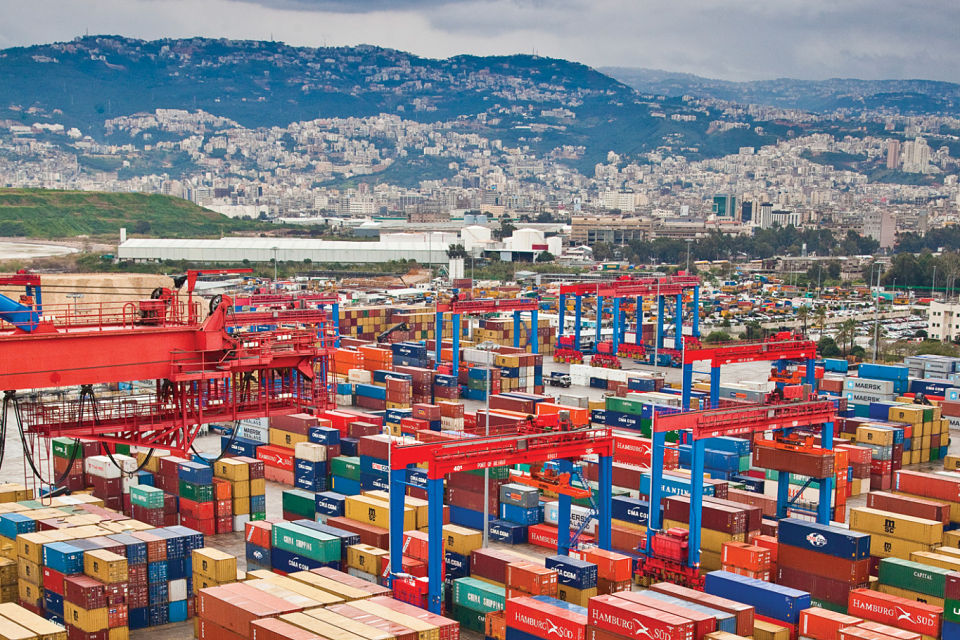UK retail industry: international action plan
Updated 15 July 2014

1. Overview
In August 2012 the Prime Minister announced that UK Trade & Investment (UKTI) will provide strategic support for the retail sector. The support is focused on helping the UK retail sector win more business internationally and securing more valuable investment in the UK.
UKTI has consulted with many different parts of the sector to develop an on-going strategy for retail success in international markets. UKTI is taking the lead in this work as part of its Olympic economic legacy strategy and is working in close collaboration with other parts of government, including:
- Department for Business, Innovation and Skills (BIS)
- Department for Environment, Food and Rural Affairs (Defra)
The Action Plan focuses on:
- helping omni-channel retailers access international markets
- helping the UK’s luxury brands access international markets
- leveraging the UK’s experience economy
- helping companies with market access issues
- helping companies with market development and supply chain development
- helping to attract retail investment to the UK
- government added-value
The aim of the Action Plan is to:
- deliver £500 millon value to the UK economy through assisting up to 1,000 businesses with their international growth in the 2 years to March 2015
- provide support for up to 600 retail sector SMEs to help with their international growth
- attract high quality foreign direct investment to the UK to enhance the UK retail sector
- attract foreign brands and retail expertise to support the UK retail sector’s international offer
- work with Business Ambassadors and the Catalyst programme (a network of business leaders and influencers) to promote the UK retail sector internationally for trade and for foreign direct investment
- tailor UKTI support programmes and increase the uptake of these services to UK retailers seeking to internationalise their businesses, specifically in the digital marketing and e-commerce areas
- increase the professionalism of the UKTI global and national network of support for the retail sector, including work with private sector providers to deliver information and advice
This was published originally by UK Trade and Investment (UKTI) which has since moved to the Department for International Trade (DIT).
2. Introduction
The UK retail sector covers all businesses that sell goods to the public:
- large chains
- department stores
- independent stores
- virtual stores
The retail sector:
- employs over 10% of the UK workforce
- accounts for more than 5% of the value generated by the UK economy each year
- contributes around £17.5 billion taxes to the UK
The UK retail sector is a leader in innovation. E-commerce and self-service are reshaping the shopping experience across the world and have put the UK at the vanguard of multi-channel shopping. UK retail accounts for 11%of global internet retail sales and the UK has the highest spend per head for e-commerce of any country.
The UK’s international brands are a magnet for inward investment and have made London the shopping capital of the world.

UK retailer Marks & Spencer
2.1 High street growth
A significant boost for UKTI’s budget is intended to deliver innovative new programmes, which will:
- get more SMEs exporting
- help UK firms access the most valuable high-value opportunities overseas
- reinforce the UK as the location of choice for investors.
The retail sector is a crucial part of these plans for growth. Around 9% of all VAT-registered businesses in the UK are retailers and UK retail sector sales were estimated at more than £300 billion in 2011.
The government is committed to supporting international growth and has set an ambition to get another 100,000 companies exporting by 2020, while doubling UK exports to £1 trillion. It also aims to maintain the UK’s ranking as the number one destination for new inward foreign direct investment (FDI) in Europe and become the number one destination in Europe for emerging-market FDI.
2.2 Support package
As part of the package of support offered by UKTI the retail sector will benefit from:
- a doubling of the number of companies receiving financial assistance towards overseas costs
- an increase in the number of international trade advisors assisting SMEs
- enhanced government support for optimising the UK share of the highest value opportunities globally
As more and more international brands open their European operations through a UK base, UKTI will also enhance inward investment support to position the UK as the destination of choice for investors from high-growth markets.
UKTI will also be delivering the GREAT campaign. A programme across the globe to underline the UK’s position as a thought leader in key growth sectors and promoting UK strengths. This work will expand international recognition of British businesses and British brands and provide direct business opportunities for companies participating in the programme of activity.
UKTI is working in close partnership with BIS to develop the public and private network and strategic programme that will help businesses of all sizes in this sector win more contracts internationally. They are also looking at ways in which UKTI and its network can help multi-brand retailers and large-scale operations to open new channels to pull sales through their supply chain and drive international growth.
Rt Hon Dr Vince Cable, Secretary of State for Business, Innovation and Skills and President of the Board of Trade said:
The UK retail industry is a significant contributor to the UK economy employing more than three million people and generating £300bn for the economy. Events like last month’s London Fashion Week showed the scope and success of the industry. British brands have a deservedly world class reputation for quality and innovation. As we rebalance the economy with more export-led growth retail has an important role to play. This Action Plan will help small and large retailers across the UK to grow and expand into new export markets.
3. Breaking international barriers
Below are the key international barriers that government can help retailers to overcome.
3.1 A strategy from the sector, for the sector
UKTI and the government are committed to working with the retail sector. This action plan is a result of extensive consultation with the sector itself. UKTI has sought input from a wide range of retail businesses including small and large retailers across many sub-sectors and those involved in both online and offline retail. The consultation set out to pinpoint where the government could best add value to the sector’s efforts.
3.2 Internet, indulgence and involvement
The retail sector is diverse and the range of potential opportunities and barriers for international growth are numerous. The action plan should focus its campaigns on 3 core areas of opportunity:
- omni-channel retailers
- luxury retailers
- companies working in the experience economy
These three retail areas have huge potential for international growth and offer the best opportunities to leverage government support to the sector. To break down the barriers for global growth the action plan should focus government support on helping UK-based companies in two key areas: gaining market access and engineering smarter supply chains.
3.3 Growth begins at home
Growth needs to stem from a solid foundation, so the action plan also seeks to reinforce inward investment into the UK retail sector. This reinforces the UK’s image as a good place to do business and supports research, innovation and skills.
Lord Green, Minister of State for Trade and Investment said:
Britain’s future prosperity will be built on growth sectors that achieve business success in international markets; so we are putting the full machinery of Government behind their trade and investment ambitions.
4. Campaign to help omni-channel retailers
Omni and multi-channel retailing is about delivering goods to the consumer through all available shopping channels. Technology is making it possible for consumers to buy anything, anywhere and anytime.
Digital malls are the most significant new type of channel to emerge in recent years. They offer brands:
- a new type of sales channel
- significant scale and access to consumers at lower go to market costs than traditional routes
In today’s increasingly borderless trading environment brands retailing through a blended approach that uses the full selection of available digital and non-digital channels are growing their businesses at home and overseas.
Brent Hoberman, Chairman Made.com said:
The rise of omni-channel shopping and e-commerce is a game-changer that creates opportunities for new businesses to grow from scratch into international brands within a few years. As Made.com is experiencing. And it’s not just about retailers; wholesalers, designers and ultimately the customers all stand to benefit.
4.1 The e-commerce opportunity
The UK is at the vanguard of multi-channel shopping. Britain’s 228,000 online retailers export more than the rest of Europe’s e-retailers put together and UK consumers spend more online per head than any other country. The fastest growing subsector of online retailing is mobile internet with mobile sales in the UK up from 0.4% in 2010, to 5.3% in 2012.
The global opportunity for UK companies is large. A rise of up to 3 billion new consumers is expected online in the next 2 years .One of the most notable trends in recent years has been the emergence of relatively new retail businesses in the UK that use a multi-channel approach to internationalise at a very early stage.
Retailers that do not compete online tend to witness contraction of new opportunities at home and overseas. The UK domestic market expects a contraction of physical shopping space by 25% in the next 5 years.
A failure to assist UK retailers who embrace the online route to international markets will see UK brands effectively frozen out of new market opportunities that are actively being pursued by other governments, including the US. Other nations are already beginning to market their expertise through delegations visiting the Gulf and Asia. The UK needs to move fast to position itself in this market space.
4.2 Reaping the rewards of leadership
In order to build on the UK’s world-leading position, UKTI will focus on assisting retail brands with their international expansion. The government is ideally placed to assist through:
- the national network of International Trade Advisors in the UK
- the global network of commercial teams in the British Embassies
- the 8 priority markets
These regions have been picked for their enormous potential. For example in the Gulf States (GCC) region UK retailers currently have a low market share but it is estimated by the Trade Association for Online Retail that every single percent growth in UK business exported to this region would provide on average £900 million of additional revenue each year.
The eight priority regions are:
- China
- GCC (Gulf States)
- India
- ASEAN (including Indonesia, Malaysia)
- North America (specifically for luxury)
- Mexico and Latin America (including Brazil, Colombia)
- European Union
- Russia and emerging Europe (including Cyprus, Poland, Turkey)
Government will offer assistance to retailers, especially the new ‘born global’ companies thriving in the multi-channel retail age, with the development of physical links within new markets and access to partners and knowledge networks. In Europe the e-commerce entry barriers are not clear and the Government is seeking to map barriers country by country to ensure we capitalise on the potential for commercial growth into the EU.
The multi-channel campaign will target large firms seeking to adapt their approach and get their e-commerce platforms adopted by consumers in key markets. It will also assist SMEs new to export who need to develop their online presence with advice and market development.
Tony Stockil, CEO of Javelin Group said:
E-commerce is dramatically changing the relationship between consumer and retailer. That in turn is changing all the rules of the game from retail economics to retail processes to the core skills and capabilities that retailers need. Retailers must adapt to compete.
4.3 Traditional routes to market
The rise of the internet has permanently changed the world of retail, but there is still a vital role for bricks and mortar. UK retailers bring significant benefit to themselves and local economies via their investment in traditional delivery mechanisms. A new focus for bricks and mortar retail providing the 21st century retail experience is a key strength in the UK – making it the destination of choice for global brands. London is the key centre for excellence and is viewed as the shopping capital of the world.
There are different routes to market and the route chosen will depend on what is most appropriate for specific retailers, products or services.
UKTI will continue through its global and UK offices to play a significant signposting role for businesses investing in traditional routes to market. In particular UKTI will identify qualified, appropriate, reliable partners for businesses in this area and deliver market intelligence on emerging opportunities.
Marc Bolland, CEO of Marks & Spencer said:
A multi-channel approach to expansion allows British retailers to extend the reach of their brand quickly to new customers around the world and so gain entry to some of the fastest growing international markets. At M&S, this approach ensures we provide the right channel mix for each market – helping us build a position of authority in the territories in which we operate.
5. Campaign to help luxury brands
Boosted by emerging economies with higher disposable incomes the global luxury market was estimated to grow by more than 8% last year and is on target to achieve forecasts of £9.1 billion by 2015.
Within this market British luxury brands are in high demand. Marketing and an online presence mean that currently around 50% of UK luxury brands enjoy an ever-increasing number of online-only clients. In 2012, it was anticipated that 72% of British luxury brands would have a presence outside the UK. Brands were looking to expand into fast-growing markets such as East Asia and Africa. In terms of British luxury abroad, 37% are already present in China and a further 27% have made plans to enter the market.
UK luxury brands are a valuable asset to the UK. Luxury brands and their designers carry significant PR weight on the global stage – whether the goods are cars, jewellery or clothing – and these add significantly to Britain’s ‘soft’ power. UK brand awareness has never been higher following the London 2012 Olympic and Paralympic Games and UKTI will capitalise on this for all retail brands, providing platforms for promotion in the key retail cities globally.

5.1 A GREAT opportunity
UKTI is helping luxury retailers by focusing on those markets with the largest proportions of households with an annual disposable income over US$300,000.
For luxury retailers, connections with cities and building relations with the fashion capitals of the world is vital. These include markets such as:
- Milan
- Paris
- London
- Shanghai
- New York
- Mumbai
- Dubai
UKTI will lead on a programme of British Weeks (including the GREAT Weeks of Luxury) in cities such as these. It will deliver a programme in key markets that will yield high value contracts for the UK and ensure that the programme is compatible with the industry’s own plans for growth. Key themes will revolve around quality, heritage, craftsmanship and innovation.
Julia Carrick, Chief Executive of Walpole British Luxury Founder said:
As one of the UK’s most valuable exports, the luxury goods industry outstrips GDP growth and is predicted to rise by 57% in 2015. It is therefore no surprise that brands such as Burberry, Mulberry and Alexander McQueen are now household names across the globe. And with the legacy of 2012 still drawing the eyes of the world to Britain, this is the time when the industry can really consolidate its position as leaders in the fields of fashion, design, service and style – all served with our trademark wit, nod to tradition and inherent quality.
Table A: International growth plan priorities for the UK luxury retail sector
| Area | Priority | Action |
| China | First and second tier cities are priority markets that have an appetite for luxury and demand high market spends to make an impact. | Maximise SME interest and impact by providing high profile Government supported platforms for brands market entry en masse. Government support by Embassy staff, VIPs and market leaders endorsements to ensure a premium UK image among the local population. |
| GCC | Priority market with an appetite for luxury and demand for high market spends to make an impact. | As above |
| India | Mumbai is a priority market which has an appetite for luxury but demands high market spends to make an impact. | As above |
| Japan | Japan (Tokyo) is a priority market which has an appetite for luxury but demands high market spends to make an impact. | As above |
| Russia and Emerging Europe | Istanbul, Warsaw, Moscow and St Petersburg are priority markets which have an appetite for luxury but demands high market spends to make an impact. | As above |
| Mexico, Central and Latin America | Mexico City, Guadalajara, Sao Paolo and Bogota are priority markets which have an appetite for luxury but demands high market spends to make an impact. | As above |
| North America | The USA has the highest number of households with an Annual Disposable Income over US$300,000 making it the No1 target market for luxury goods. | We will work with the sector to create joint marketing campaigns, specifically in New York and Los Angeles. |
| European Union | Germany is a key market for accessing high net worth individuals and the fashion capitals of Milan and Paris are a priority. | We will work hard to maintain London’s position as the world’s leading creative hub and the UK’s position as home to luxury and craftsmanship. |
| Markets of tomorrow | Identify market opportunities. | Scope opportunities in the forthcoming years. |
6. Campaign to leverage the experience economy
The ‘experience economy’ is the concept that embraces all aspects of activity where a customer has an experience of some kind of service or event. Most typically, it is associated with visitor attractions or cultural spaces – ranging from theme parks to museums. It also applies to the new retail experience.
The experience economy is a fast-growing market across the world and the UK has become a global leader in the industry. It is widely known for its creation and operation of a wide variety of world-class visitor attractions including museums, galleries, heritage sites and theme parks.
6.1 Experience needed
UKTI is committed to helping UK companies exploit the global spend on new leisure destinations and cultural cities. With the UK experience of retail in the vanguard of this work, there are growing international opportunities for UK brands to be centre stage in the world’s premium development projects. UK companies can sell skills, experience and products in this space all around the world.
UKTI’s interest lies in identifying highest value opportunities for new destinations and then helping UK companies win business in those projects. UKTI works through a mix of positioning and influencing at one level, and energising the supply chain at another.
UKTI has engaged a leading consultant in the sector to study a first group of nascent projects with a combined value of around £60 billon, and is working with the sector to identify the best prospects. These will be a mix of projects ranging from the cultural subsector to the heavily commercial. Almost all will have a retail component. It will be essential to build the retail sector into this process.
Malcolm Reading, architect and design competition organiser said:
What the UK does that’s so unique is use contemporary design both to make new experiences, like the Millennium Bridge or the Coca-Cola Beatbox pavilion at London 2012 and also stitch it into its grand, historical buildings. King’s Cross Station, the V&A and a whole clutch of eminent buildings, are currently being refreshed with flair and ingenuity. In the UK designers are not scared of that juxtaposition of old and new; on the contrary it excites them… it’s a fascinating conversation that’s highly creative and rewarding.
7. Campaign to help with market access
International success relies on open markets. However market access issues remain perhaps the most common barrier facing UK exporters. This is especially the case in high-growth markets. Market access issues affect SMEs and large companies alike and include:
- regulatory issues
- labelling
- product testing
- intellectual property
- prohibitive administrative processes

Shipping docks
7.1 Getting to market
Each market is unique and UKTI is committed to using its network to help the UK Government’s aim to reduce market access barriers for retailers wherever possible.
High-growth emerging economies are the priority in this area. UKTI will align its trade development work with the wider government’s trade policy activity by coordinating activity in key priority markets. This will highlight the government message and open new markets for retailers. This will be done through a task force approach with the Department for Business, Innovation and Skills and the Foreign & Commonwealth Office.
Priority markets include:
- India
- Brazil
- Mexico and Colombia
- Libya
- Nigeria
- ASEAN bloc
- European Union
Ray Symons, British Retail Consortium said:
We can design and produce great products that emerging markets want, but in some countries we need help to overcome complex tax systems or inefficient customs. We look to agencies like UKTI to help us overcome market access issues.
8. Campaign to support market development and supply chains
All retailers know the importance of good supply chains to their businesses. Consumers demand consistent, high quality goods and retailers need to develop long term, sustainable relationships with their suppliers.
For retailers who export to many countries the costs and logistics of their supply chains become more complex and need appropriate trade agreements in place to ensure there are no unnecessary costs and difficulties.
8.1 Working for smarter supply chains
Government is committed to working with the retail industry to ensure that British producers and suppliers are part of the international growth Action Plan. The UK retail industry is a key supporter of this approach.
Government will work closely with industry to re-engineer supply chains to allow direct shipments from source to markets and to find the best methods to take advantage of trade agreements such as ASEAN.
UKTI will scope market opportunities at supply chain events and take advantage of opportunities as they emerge in their priority markets.
Ian Hutchins from Tesco said:
The shifting economic centre of gravity from West to East is radically changing global trade. That has a big potential impact on our supply chains and means we have to be flexible and smart about how we work with producers all over the world.
9. Helping attract high value investment to the UK
Maintaining the UK’s high levels of inward investment is an important part of the Action Plan for the UK retail sector. It provides a vital source of income, helps attract talent and fosters innovation among UK-based retailers.
One of the most significant drivers of inward investment for the UK retail sector has been e-commerce. E-commerce has clearly outperformed other channels such as general mail order, direct marketing and direct selling.
The UK is one of the world’s most influential primary shopping destinations. UKTI is working with global retailers to ensure that the UK remains the destination of choice for the world’s leading retail brands to site their European headquarters in, as well as other high value operations such as manufacturing, logistics and high end retail outlets (bricks and mortar) that create jobs and prosperity for the UK economy.

Window shopper
10. Government added value
Britain’s future prosperity will be built on sectors like retail succeeding in international markets, and UKTI is determined to offer practical support to exporters and inward investors.
10.1 Ministerial engagement
UK Ministers will carry the UK retail message to global markets as part of their core business, prioritising the key opportunity markets for UK retailers. Ministers will:
- incorporate British brands and retailers as part of the GREAT campaign
- work closely with the UK’s multi-brand retailers to assist them with their own specific international growth needs
UKTI will also create more opportunities for UK retailers of all sizes to accompany high-level business delegations which visit key markets. These trade missions will proactively promote the issues important to British retail and foster awareness of UK expertise in areas such as e-commerce, luxury and the experience economy.
10.2 Networking opportunities
Through its global network of Embassies, Consulates and High Commissions UKTI is in a unique position to provide high quality networking and introductory services in overseas markets.
10.3 Relationship management
UKTI, via its Retail and Strategic Relationship teams, will develop a more proactive relationship management approach to working specifically with those UK retailers with multi-market business development strategies.
10.4 Training
The Government has committed to up skilling the UKTI network to better serve retail businesses through a training programme and by obtaining access to industry leading information sources.
11. Next steps
This Action Plan is owned jointly by government and industry. The intention is that it be a living document that will be reviewed every six months.
Short-term actions over the next year
| Key actions | Owner |
| Encourage more companies to develop international growth strategies through outreach to the retail sector. | UK Trade & Investment |
| Develop retail sector specific country overviews for key overseas markets – key facts for companies in this industry. | UK Trade & Investment, FCO |
| Work closely with key UK Ministers to actively promote the retail sector when travelling overseas. | UK Trade & Investment |
| Use the UK government’s Business Ambassadors/Trade Envoys to reinforce top level messages on UK Retail Excellence. | UK Trade & Investment |
| Showcase the luxury segment in key overseas markets as part of the GREAT campaign. | UK Trade & Investment, Industry |
| Research high value business opportunities and deliver campaigns to optimise UK success in these projects. | UK Trade & Investment |
| Help UK businesses attend sector specific events internationally. | UK Trade & Investment |
| Develop access to export information by creating a signposting portal for retail. | UK Trade & Investment |
| Ensure UKTI services are fit for purpose for retailers. | UK Trade & Investment |
| Ensure key government delivery partners in the UK regions and devolved administrations are briefed and able to deal with industry enquiries. | UK Trade & Investment |
| Esure key government delivery partners in key international markets are briefed and able to deal with industry enquiries. | UK Trade & Investment |
| Create a retail UK Sector Advisory Group to ensure industry involvement in the evolution of the action plan and its campaigns. | UK Trade & Investment |
Medium-term actions over the next 2 years
| A cross-government effort, in collaboration with industry to remove barriers to trade for British retailers into priority overseas markets. | UK Trade & Investment, BIS, FCO |
Long-term
| Identify opportunities in growth markets of the future and develop programmes to support them. | UK Trade & Investment, FCO |
12. Contact us
UKTI has helped thousands of UK exporters and inward investors from overseas achieve commercial success by providing tailored services with specialist support covering a wide range of industries.
12.1 Inward investors
UK Trade & Investment’s comprehensive range of services assists overseas companies, whatever their size and experience, to bring high-quality investment to the UK.
Enquiries for overseas companies looking to set up in the UK
Email enquiries@ukti-invest.com
Contact form https://www.contactus....
Telephone: +44 (0)207 000 9012
Overseas companies can contact the Investment Services Team for information about setting up in the UK including the help that is available.
12.2 UK exporters
Whether a firm is starting out or is experienced in exporting, UKTI’s services can help to make doing business internationally as easy as possible.
UKTI head office - general enquiries
1 Victoria Street
London
SW1H 0ET
For general enquires, including information on exporting overseas contact UKTI head office.
